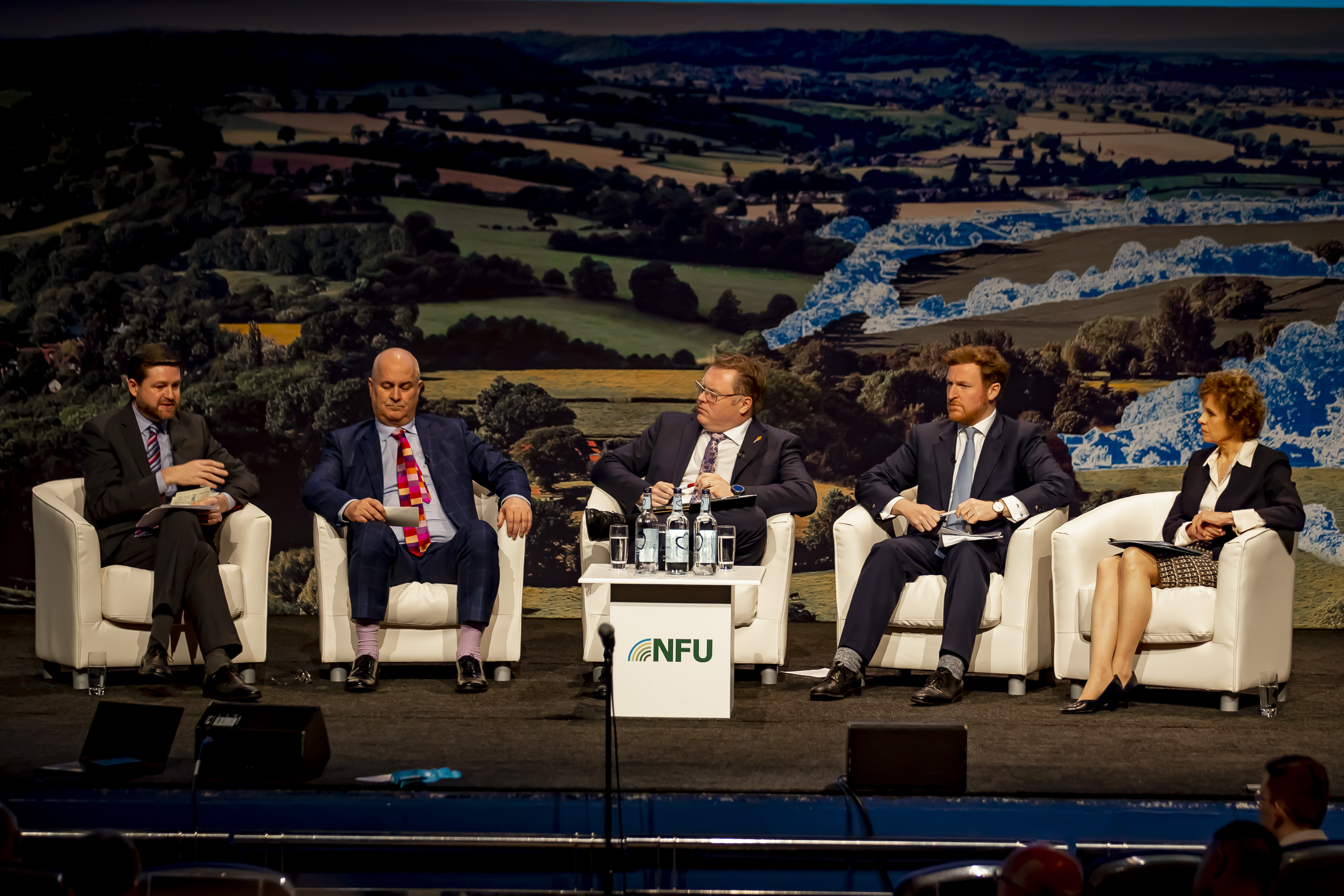Brexit and Covid-19 created a policy environment of last-minute or late decision-making and frequent changes of direction, much of it by necessity.
That has had seismic implications for businesses.
This NFU Conference panel session looked at whether farmers should now expect a return to more long-term planning, or whether uncertainty is the ‘new normal’.
"Where is the plan for a proper buy British campaign when trade deals are being struck that actively undermine British producer interests?"
Shadow Defra Secretary Jim McMahon
Disruptive influences and political planning
Shadow Defra Secretary Jim McMahon said energy inflation, a cost-of-living crisis that was ‘likely to get worse before it gets better’, and a once in a generation shake-up of farm support should be added to a tally of disruptive influences.
His message was that uncertainty would not end without a comprehensive, cross-department plan for farming.
“Where is the plan to address the £2.4 billion of lost exports in the first three-quarters of last year?” he said. “Where is the plan to put labour on the field and to bring across the butchers that we need? Where is the plan for a proper buy British campaign when trade deals are being struck that actively undermine British producer interests? What is the government doing to manage the costs of inflation that you are seeing?”
He called for government to tap the £2 billion ‘power of procurement’ to benefit British farmers.
And while Labour ‘strongly believed’ that ELMs could be made to work, Mr McMahon said he did not believe trying to get the reform done from the same pot of money as before was viable. “There is too much demand on that pot,” he said.
At the same time as farmers were raising significant fears for the future, he noted that city-based investment firms were “buying up family farms to plant non-native trees”. He questioned the level of strategic overview that allowed that to happen.
View from the farm
LBC Radio presenter and Essex family farm owner Iain Dale said plans were all well and good, but said too many had been created by “civil servants who don’t have a clue”. “Is uncertainty the new normal for business? Well, when hasn’t it been?” he said.
While not a panacea, he said Brexit would yet provide real opportunities. These had been ‘thrown off course’ by the pandemic, but would be capitalised on by resilient British farmers, especially when they could point to an 88% approval rating from the British public.
“What a great place to start from,” he said. “If you provide a few solutions to government, you ought to be knocking at an open door.”
“There’s always been uncertainty, it’s inevitable, but the resilience you have shown is amazing. When the world stopped, doctors and farmers did not.”
Podcaster and former adviser to the Prime Minister, Jimmy McLoughlin
Opportunities
“There’s no doubt we are in a grand realignment moment,” said podcaster and former adviser to the PM, Jimmy McLoughlin.
“But there’s a danger that what happens is that the moment passes and ends up being a confirmation for everyone of what they thought before.”
Instead, he urged farmers to turn the page, to translate their passion into social media campaigning, to be open to new ideas, alert to trends and to create new opportunities with “the fantastic stories you have to tell”.
“Consumers are ever more aware about where they get their stuff and that is a great opportunity,” he said. “There’s always been uncertainty, it’s inevitable, but the resilience you have shown is amazing. When the world stopped, doctors and farmers did not.”
Regulation
Food Standards Agency chair Professor Susan Jebb said regulators had a part to play in ‘extraordinary times’.
“Farmers are better at dealing with uncertainty than any other people and we need to learn from you,” she said.
Like farmers, she said the agency needed to focus on its core job, in its case making sure food is what is says it is and that it is safe, despite “everybody asking us to do 101 other things”.
She said the FSA would become more forward looking, improve surveillance to address problems before they become crises and show agility to support innovation.
“A strong FSA is good for farmers,” she said, adding that belief in the efficacy of the FSA underpinned consumer trust, which put British food on a sound footing.
“It’s even more reason to work together. We need to work with common purpose for the high food standards producers and consumers are proud of.”
